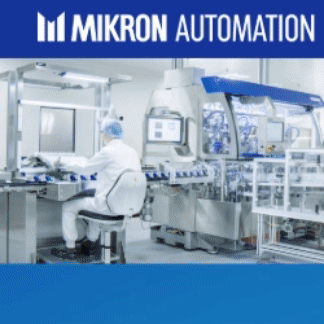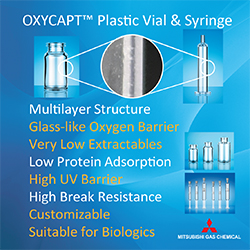12/12/2012
TNF Inhibitors Lay Groundwork for Next-Generation of Disease-Modifying Anti-Rheumatic Drugs
The challenges inherent in the pharmacological management of rheumatic diseases have stoked huge demand for drug classes with excellent safety and efficacy profiles. While tumor necrosis factor (TNF) inhibitors have greatly enhanced the treatment of these incurable chronic conditions, their unpredictable and inconsistent efficacy as well as their high cost, potential side effects, and uncomfortable mode of delivery (by injection) are driving the need for alternative therapies.
New analysis from Frost & Sullivan’s (http://www.healthcare.frost.com/) The United States Rheumatic Diseases Therapeutics Market research finds that rheumatic disease therapeutics prescribed as add-on therapies to background standard therapies earned revenues of approximately $8.99 billion in 2011 and estimates this to reach $14.04 billion by 2017. Frost & Sullivan has also analyzed sub-segments of the US rheumatic diseases therapeutics market, including psoriatic arthritis, ankylosing spondylitis, and rheumatoid arthritis pharmacotherapeutics.
Although TNF inhibitors have improved the lives of millions of rheumatic disease patients, there is still a vast, underserved patient pool that does not respond to this class of drugs. This huge market potential is driving pharmaceutical and biotechnology companies with immunology and inflammatory disease expertise to develop affordable alternatives with better efficacy.
“TNF inhibitors are currently the only add-on treatment option for psoriatic arthritis and ankylosing spondylitis patients, many of whom do not respond to this class and have no alternatives,” said Frost & Sullivan Senior Industry Analyst Deborah Toscano. “New agents hope to offer patient-friendly alternatives to TNF inhibitors with additional benefits, such as oral administration or better tolerability, with the ultimate goal of improving long-term clinical outcomes.”
While no area of pharmacotherapeutics is without need of improvement, the unmet needs for rheumatic diseases, such as rheumatoid arthritis, psoriatic arthritis, and ankylosing spondylitis, have significantly decreased with the availability of TNF inhibitors. Thus, the main challenge for new entrants is the entrenchment of TNF inhibitors within the medical and regulatory communities.
“To gain acceptance from regulatory authorities, clinicians, and patients, emerging therapies must demonstrate economic benefits and a higher degree of safety over TNF inhibitors,” noted Ms. Toscano. “Companies must also effectively market the safety and efficacy profiles as well as the robust clinical history of their drugs to raise awareness and gain the confidence of prescribing rheumatologists, patients, and payors.”
The United States Rheumatic Diseases Therapeutics Market is part of the Life Sciences Growth Partnership Services program, which also includes research in the following markets: US Market for Ankylosing Spondylitis Pharmacotherapy, US Market for Psoriatic Arthritis Pharmacotherapy, US Rheumatoid Arthritis Market: Assessment of Biologics and New Treatments, Rheumatoid Arthritis Therapeutics Market in Australia, and Rheumatoid Arthritis Therapeutics Market in India. All research services included in subscriptions provide detailed market opportunities and industry trends evaluated following extensive interviews with market participants.
Frost & Sullivan, the Growth Partnership Company, works in collaboration with clients to leverage visionary innovation that addresses the global challenges and related growth opportunities that will make or break today’s market participants. If you are interested in more information on this research, please send an email to Britni Myers, Corporate Communications, at britni.myers@frost.com, with your full name, company name, job title, telephone number, company email address, company website, city, state, and country.
Pearl Therapeutics Issued US Patent on Co-Suspension Formulation Technology
Pearl Therapeutics Inc. recently announced that the US Patent and Trademark Office has issued a patent on its novel co-suspension formulation technology for inhaled combinations. US Patent No. 8,324,266, titled Compositions, Methods & Systems for Respiratory Delivery of Two or More Active Agents was issued on December 4, 2012, and covers methods for treating pulmonary disease using Pearl’s co-suspension technology in metered-dose inhalers (MDIs).
This technology effectively prevents the sedimentation of drug crystals inside MDI canisters, minimizes interaction of active agents either with canister components or with each other, and keeps active agents stable over long periods of time. These characteristics allow for consistent dosing of each of the co-suspended active agents, even where the active agents are delivered at ultra low doses. Pearl’s co-suspension technology is used in its lead bronchodilator combination candidate PT003, a fixed dose combination of glycopyrrolate (GP) and formoterol fumarate (FF), as well as PT010, a triple-combination of GP, FF, and an inhaled corticosteroid.
“We believe our co-suspension formulation technology, as described in this patent, is a key differentiator of Pearl’s combination product pipeline. Using this technology, we have accomplished three important goals: reproducibly combined drugs and doses at unprecedentedly low levels in MDIs; advanced a dual bronchodilator combination PT003 through a rigorous clinical development program; and formed a stable triple combination of two bronchodilators and a corticosteroid,” said Sarvajna Dwivedi, PhD, Pearl’s Co-founder and Executive Vice President, Research and Development. “The issuance of this patent is a testament to the scientific innovation and engineering excellence of the Pearl team.”
“This patent marks the rapid evolution of Pearl’s intellectual property beyond the patent portfolio in-licensed in 2007,” added Chuck Bramlage, Pearl Therapeutics’ Chief Executive Officer. “The patent protection into 2030 afforded by this issuance gives the company greater control of the long-term commercial value of its combination product portfolio, including PT003. With the recent completion of PT003’s Phase II program, we are preparing to advance it into Phase III in 2013, and subsequently to bring to market this valuable therapy for the millions of individuals whose COPD is inadequately controlled with current medications.”
Pearl Therapeutics is a privately held company developing combination therapies for the treatment of highly prevalent respiratory diseases, including chronic obstructive pulmonary disease and asthma. Pearl is rapidly advancing a pipeline of products including PT003, an inhaled, fixed-dose combination bronchodilator product composed of a long-acting muscarinic antagonist (LAMA) and a long-acting beta-2 agonist (LABA) delivered via a metered dose inhaler (HFA MDI); and PT010, a triple-combination product that combines the LAMA and LABA components of PT003 with an inhaled corticosteroid (ICS) for twice-daily administration from an HFA MDI for the treatment of severe COPD. Both PT003 and PT010 are developed with Pearl’s proprietary porous particle co-suspension technology, which allows the formulation of multiple products in the MDI format, with highly stable, robust, and aerodynamically efficient drug delivery. For more information, please visit www.pearltherapeutics.com.
New Genomic Biomarker Services to Improve Drug Development Pipelines
EMD Millipore’s Discovery and Development Solutions business, part of the Life Science division of Merck KGaA of Darmstadt, Germany, recently announced it will now offer genomic biomarker services to aid drug companies in targeting patient sub-groups for improved clinical outcomes, understanding drug safety and efficacy, and characterizing tumors.
The new qPCR and pyrosequencing-based services add to the company’s existing protein- and cell-based solutions, which include ELISA, multiplex, and flow cytometry platforms, as well as its extensive experience in assay development, validation, and sample testing. By enabling both genomic biomarker analysis as well as cross-platform biomarker validation, EMD Millipore can help customers improve their research and development pipeline decisions.
Demonstrating the value of EMD Millipore Biomarker Services, which now links genomic, protein-based, and cell-based technologies, scientists at EMD Millipore recently profiled transcription in gefitinib-treated non-small cell lung cancer (NSCLC) cells by qRT-PCR. The genotypic and mRNA expression data were then cross-validated with protein expression using flow cytometry and multiplex assays, solidifying the connection between the genotype and phenotype of interest. These types of connections provide confidence to preclinical and clinical decision-makers regarding drug safety and efficacy.
“The drug development process is undergoing a paradigm shift from a one size fits all model to Precision Medicine,” says Christina Shasserre, Vice President of Discovery and Development Services at EMD Millipore. “Genomic information remains a critical part of this transformation. At EMD Millipore, we have the platforms, the scientific expertise, and the experience running assays to help our customers develop their genomic biomarkers and enable them to successfully deliver on this new paradigm.”
EMD Millipore Discovery and Development Solutions, with sites in Dundee and Oxford, UK and St. Louis, Missouri, is a leading provider of outsourced discovery and bioanalytical services, focusing on the development of biotherapeutics. For more information, please visit www.emdmillipore.com/CRO.
Teva Enters $376-Million Deal for Xenon’s Pain Drug
Teva Pharmaceutical Industries Ltd and Xenon Pharmaceuticals Inc. recently announced they have entered into a collaborative development and exclusive worldwide license for XEN402, which is currently in clinical development for a variety of painful disorders. This product specifically targets sodium channels that are abundantly found in sensory nerve endings that can increase in chronic painful conditions.
Under the Agreement, Teva will pay Xenon an up-front fee of $41 million. In addition, Teva will pay development, regulatory, and sales-based milestones totaling up to $335 million. Xenon is entitled to royalties payable on sales and an option to participate in commercialization in the US.
“Teva is building a focused pipeline of novel medicines in select areas of medical need,” said Dr. Jeremy Levin, President and CEO of Teva Pharmaceutical Industries Ltd. “XEN402 fits this strategy. It holds the potential to address the significant unmet medical need for the many patients who suffer from chronic pain. In addition, XEN402 has the potential for broader therapeutic use across other pain conditions.”
“We are delighted to be collaborating with Teva,” added Simon Pimstone, MD, PhD, President and CEO of Xenon. “Teva is among the world’s leading pharmaceutical companies and is building a significant global presence in innovative drug development and commercialization. This partnership with Teva is Xenon’s seventh major pharmaceutical alliance, once again highlighting the value of Xenon’s unique genetics approach and translational R&D capabilities.”
XEN402 treats pain locally at its source through blocking of Nav1.7 and Nav1.8 sodium channels. XEN402 has been studied in human subjects as both oral and topical forms. In a published study, oral XEN402 was shown to be effective at relieving the pain associated with the rare neuropathic pain condition, erythromelalgia. Topical XEN402 was studied in a Phase II trial to evaluate for effectiveness in alleviating the pain of post herpetic neuralgia. In this study, the proportion of patients reporting clinically meaningful reductions in pain was significantly greater for topical XEN402 than for placebo (p = 0.049 for > 30% response and p = 0.0078 for > 50% response).
Teva is a leading global pharmaceutical company, committed to increasing access to high-quality healthcare by developing, producing, and marketing affordable generic drugs as well as specialty pharmaceuticals and active pharmaceutical ingredients. For more information, visit www.tevapharm.com.
Xenon is a privately owned, clinical genetics-based drug discovery and development company engaged in developing novel therapies based on the genetic causes of select metabolic, neurological and cardiovascular diseases. For more information, visit www.xenon-pharma.com.
Isis Pharmaceuticals Announces $31-Million Strategic Cancer Alliance
Isis Pharmaceuticals, Inc. and AstraZeneca recently announced a strategic alliance for the discovery and development of novel-generation antisense therapeutics against five cancer targets, which includes a license to develop and commercialize ISIS-STAT3Rx, a drug Isis is currently evaluating in an early clinical trial in patients with advanced lymphomas. Antisense therapies target the proteins involved in disease processes by destroying the RNA that is involved in creating these proteins. The Isis discovery platform develops specific therapies that bind to messenger RNA (mRNA) and inhibit the production of disease-causing proteins.
The strategic alliance aims to apply AstraZeneca’s experience in developing personalized medicines to enhance the drug discovery and development process for four research programs in the oncology area and to aid in the development of ISIS-STAT3Rx for patient populations that could benefit the most from inhibition of STAT3, a protein that drives cancer growth. The combination of Isis’ antisense technology and its new Generation 2.5 chemistry, which increases the potency of its therapeutics, provides AstraZeneca the opportunity to develop drugs that could be much more effective in cancers that are difficult to address with conventional small molecules or antibodies.
“Isis’ antisense technology platform allows AstraZeneca to broaden our oncology research efforts beyond traditional drug discovery methods, while at the same time becoming more specific about how we target cancer,” said Susan Galbraith, Head of the AstraZeneca Oncology Innovative Medicines Unit. “AstraZeneca’s expertise in oncology translational science and our global capabilities in development and commercialization of oncology products and Isis’ innovative approach to discovering novel medicines reflect a common goal of bringing new medicines to cancer patients.”
“We are excited to collaborate with AstraZeneca, a global leader in oncology, to apply our technology and drug discovery expertise to developing novel anti-cancer agents. We will benefit from AstraZeneca’s extensive oncology expertise in the use of novel preclinical animal models to validate targets and develop predictive assays to identify which patients would benefit the most from these new targets,” added B. Lynne Parshall, Chief Operating Officer and chief financial officer at Isis.
“ISIS-STAT3Rx is our first cancer drug to incorporate our new technology, and we are encouraged by the early clinical data we have observed,” said Brett Monia, PhD, Senior Vice President, Antisense Drug Discovery at Isis. “While STAT3 is implicated in a number of different cancers, the focus in our ongoing clinical study is to evaluate the effectiveness of our drug in hematologic malignancies, such as lymphoma. We have worked closely with AstraZeneca to design a rapid path to the market for ISIS-STAT3Rx in these patient populations. While working toward this goal, AstraZeneca’s resources, expertise and development capabilities also provide us the opportunity to evaluate ISIS-STAT3Rx as a broad-based anti-tumor agent.”
Under the terms of the agreement, Isis will receive from AstraZeneca $31 million in up-front and near-term payments, comprising a $25-million payment on signing followed by a $6 million payment in the second quarter of 2013 assuming the research program is continuing. In exchange, Isis has granted AstraZeneca an exclusive license to develop and commercialize ISIS-STAT3Rx and a preclinical program as well as an option to license products developed under a separate research program. Once licensed, AstraZeneca will be responsible for all further development and commercialization.
AstraZeneca will be responsible for all development of ISIS-STAT3Rx other than the conduct of the ongoing clinical trial, which Isis will complete. Isis is eligible to receive further milestone payments subject to achieving certain predefined clinical success criteria for the ISIS-STAT3Rx program and preclinical milestones for the other programs. Isis is also eligible to receive downstream development and approval milestone payments, license fees for research program targets, as well as royalties on sales from products that are successfully commercialized.
ISIS-STAT3Rx is the first drug in Isis’ pipeline that incorporates Isis’ Generation 2.5 chemistry, which was developed to increase potency of antisense drugs thereby creating opportunities for drugs like ISIS-STAT3Rx to be more effective in addressing targets in a broader range of tissues, including tumors. ISIS-STAT3Rx is designed to inhibit the production of signal transducer and activator of transcription 3 (STAT3), a protein critical for tumor growth and survival.
Because STAT3 is overexpressed in numerous types of cancers, ISIS-STAT3Rx has the potential to be broadly useful for both solid and hematological tumors. Isis recently reported encouraging data from its ongoing Phase I study showing that ISIS-STAT3Rx had an acceptable safety profile and treatment with ISIS-STAT3Rx resulted in clear responses in a number of patients with advanced cancer who were refractory to multiple prior chemotherapy treatments. The indication of activity so early in development in a Phase I study prompted Isis to initiate a follow up clinical study to evaluate the safety and efficacy of ISIS-STAT3Rx in focused patient populations with lymphomas and other advanced hematologic cancers linked to activation of STAT3 who have failed other treatment options.
AstraZeneca is a global, innovation-driven biopharmaceutical business with a primary focus on the discovery, development, and commercialization of prescription medicines for gastrointestinal, cardiovascular, neuroscience, respiratory and inflammation, oncology and infectious disease. For more information, visit www.astrazeneca.com.
Isis is exploiting its leadership position in antisense technology to discover and develop novel drugs for its product pipeline and for its partners. Isis’ broad pipeline consists of 25 drugs to treat a wide variety of diseases with an emphasis on cardiovascular, metabolic, severe and rare diseases, and cancer. For more information, visit www.isispharm.com.
Moderna Therapeutics Secures $40 Million for New Way of Making Therapeutic Proteins
Moderna Therapeutics recently announced it has closed more than $40 million in financing to date, led by Flagship Ventures and private investors, which will be used to advance multiple programs toward clinical stage development. Moderna is pioneering messenger RNA Therapeutics, a novel biotherapeutic modality with the unprecedented capability of stimulating the body’s natural ability to produce therapeutic proteins. If successful in human clinical trials, this advance will usher in the first entirely new way of making therapeutic proteins since the development of recombinant technology more than 30 years ago, with significant implications for both patients and industry.
Moderna was founded within Flagship VentureLabs, an innovation foundry dedicated to institutional entrepreneuring. Over the past 18 months, Moderna has conducted proof-of-concept studies in preclinical models, including non-human primates, and has demonstrated the ability to induce in vivo production of dozens of intracellular and secreted therapeutic proteins through intramuscular, subcutaneous, or intravenous administration across multiple preclinical models. The company anticipates publishing and presenting the results of these studies in 2013.
Moderna has appointed an accomplished executive leadership team and scientific advisory board, and implemented a comprehensive intellectual property strategy surrounding messenger RNA Therapeutics, filing over 80 patent applications reciting more than 4,000 claims covering novel chemical modifications, RNA engineering, formulation, composition of matter, route of administration, and dosing. The company has established preclinical programs in four key therapeutic areas: oncology supportive care, inherited genetic disorders, hemophilia, and diabetes.
“Our messenger RNA Therapeutics platform has the potential to revolutionize the treatment of a wide variety of illnesses by opening up a completely new biotherapeutic modality, and by offering a technologically and financially superior path for the discovery, creation, and endogenous production of therapeutic proteins,” said Stephane Bancel, President and Founding CEO of Moderna. “In the last 18 months, we have charged ahead in this space, vigorously pursuing a robust IP portfolio. We have hired an experienced employee base and cultivated leadership and advisory teams who are offering deep insights as we advance key programs into clinical development. We are working with great urgency and great care to translate this groundbreaking science into new treatments for patients.”
“Moderna’s promise rivals that of the earliest biotechnology companies over 30 years ago – adding an entirely new drug category to the pharmaceutical arsenal in the fight against important diseases,” said Noubar Afeyan, Co-founder and Chairman of Moderna. “The executive team, board of directors, and scientific advisors all combine the expertise and passion needed to create an unparalleled company that fits the extraordinary scope of this opportunity,” he added.
Moderna is pioneering messenger RNA Therapeutics, an entirely new treatment modality that enables the body to produce therapeutic proteins in vivo. Moderna is using this approach to develop first-ever treatments for a wide range of diseases that cannot be addressed today using existing technologies, and to significantly reduce the time and expense associated with creating therapeutic proteins using recombinant technologies. The company has demonstrated proof-of-concept using messenger RNA Therapeutics for a variety of indications and is moving multiple programs into the clinic. For more information, visit www.modernatx.com.
Total Page Views: 1098













